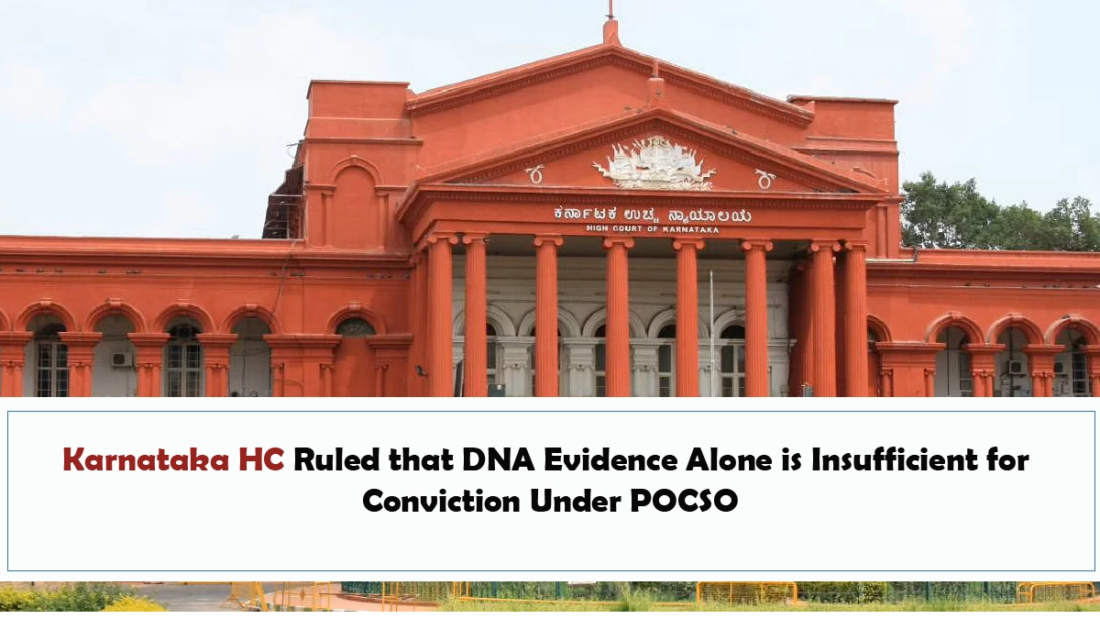Facts of the Case
The respondent-accused, Mr. N, a resident of Belagavi District, Karnataka, was charged under Section 376(2) of the Indian Penal Code (IPC) and Sections 4 and 6 of the Protection of Children from Sexual Offences (POCSO) Act. The alleged victim, aged 17, resided in Kibballi Village and became acquainted with the accused while he was working in her village. It was alleged that on 15 January 2015, the accused had sexual intercourse with the victim near a forest area on the false promise of marriage, following which the two remained sexually active. When the victim became pregnant, the accused allegedly began avoiding her, prompting her to lodge a police complaint on 29 January 2016.
The police filed a chargesheet after investigation, including a DNA report indicating the accused as the biological father of the child. The victim gave birth to a baby girl on 1 March 2016. The prosecution examined 22 witnesses and submitted 37 documents. However, the trial court acquitted the accused on 27 August 2021, which led the State to file a criminal appeal under Sections 378(1) and (3) of the Criminal Procedure Code.
Contentions of the State/Prosecution
The State argued that the trial court erred by acquitting the accused despite strong scientific evidence. It contended that although the victim and her parents turned hostile, it was established through their testimonies that the victim was a minor and gave birth to a child. The prosecution stressed the evidentiary value of the DNA report (Exhibit P33), which showed the accused as the biological father of the child. It maintained that this scientific evidence, coupled with the age of the victim, was sufficient to prove the offence beyond reasonable doubt and urged the High Court to set aside the acquittal and convict the accused.
Contentions of the Accused
The counsel for the accused contended that there was no perversity in the trial court’s judgment. He pointed out that the victim, her parents, and relatives unequivocally stated that the accused had not committed any sexual act with the victim. Furthermore, key witnesses turned hostile, and there was no corroborative oral evidence. He argued that the DNA report, standing alone without support from other reliable evidence, was insufficient to establish guilt. Thus, the trial court’s appreciation of evidence and the resulting acquittal were correct and required no interference.
Court’s Observations
The Karnataka High Court carefully examined the evidence and testimonies on record. It acknowledged that the prosecution’s case relied heavily on the DNA report identifying the accused as the father of the child. However, the Court emphasized the lack of corroboration from the victim or her family.
“Except the DNA report, absolutely no other corroborative piece of evidence is available on record to connect the accused with the alleged offence.”
“The victim herself firmly stated that the accused did not have any sexual intercourse with her. She is not aware who the father of her child is. Even her parents and relatives also deposed similarly.”
The Court discussed the limitations of forensic science and DNA analysis:
“No forensic test is 100% certain… the field relies on statistical probabilities and rigorous quality control to provide the best possible evidence.”
Quoting the National Forensic Science University’s report, the Court reiterated:
“While STR test is a highly reliable method for DNA identification, no forensic test is 100% certain.”
It also referred to Supreme Court rulings, including Manoj v. State of M.P. and Pattu Rajan v. State of T.N., to underline that DNA evidence is opinion evidence under Section 45 of the Indian Evidence Act and must be weighed alongside other material evidence:
“Like all other opinion evidence, the probative value accorded to DNA evidence also varies from case to case…”
The Court cited the Gujarat High Court in Premjibhai Bachubhai Khasiya v. State of Gujarat to affirm that:
“If the DNA report is the sole piece of evidence, even if it is positive, it cannot conclusively fix the identity of the miscreant.”
The Court concluded that the victim’s oral testimony and that of her family contradicted the medical findings, and thus the DNA report alone could not establish guilt.
Court’s Order
The Division Bench of Justice R. Nataraj and Justice Rajesh Rai K dismissed the State’s appeal and upheld the trial court’s acquittal. The Court ruled that since the trial court had taken a plausible view based on the evidence, interference was not warranted:
“It is a settled position of law… that in an acquittal judgment, if the Trial Court has taken a plausible view, then the Appellate Court shall not casually interfere with such judgment of acquittal.”
Accordingly, the appeal was dismissed, and the acquittal of the accused was affirmed.
Written by Adv. Deeksha Rai
 Cart is empty
Cart is empty 

